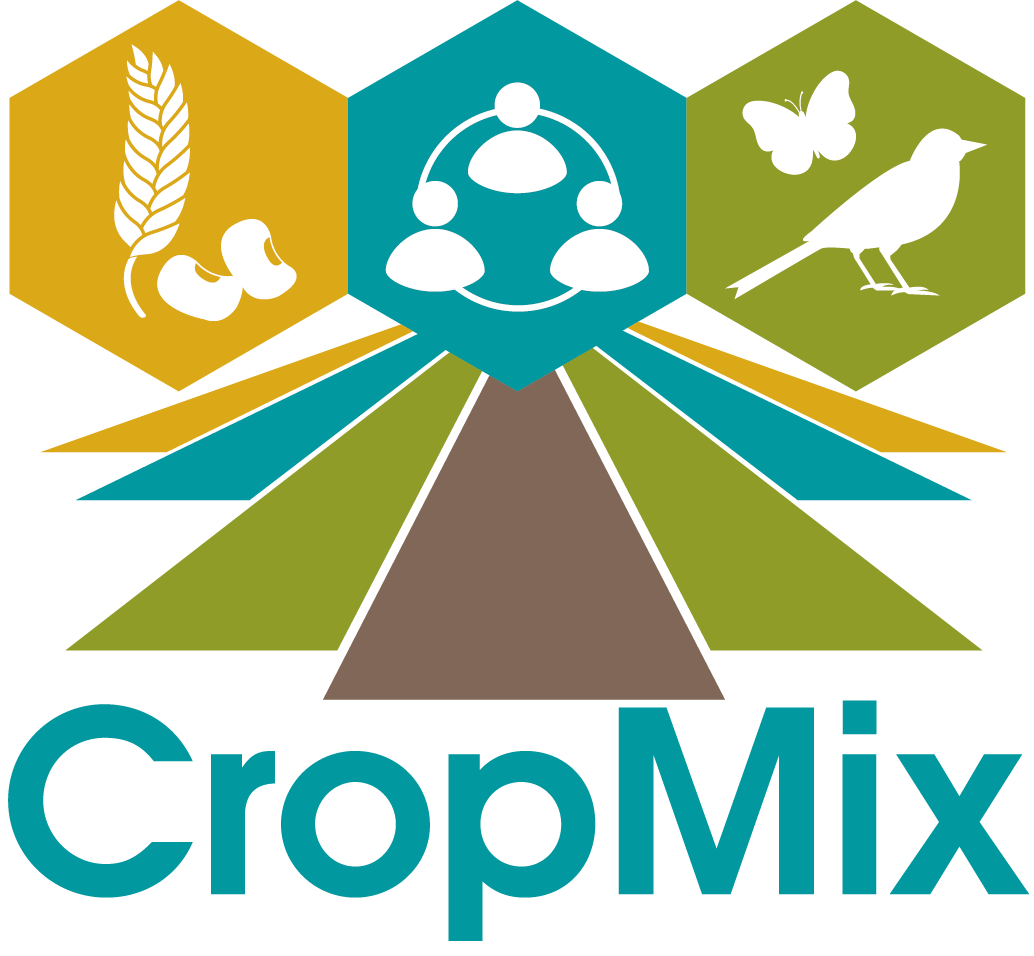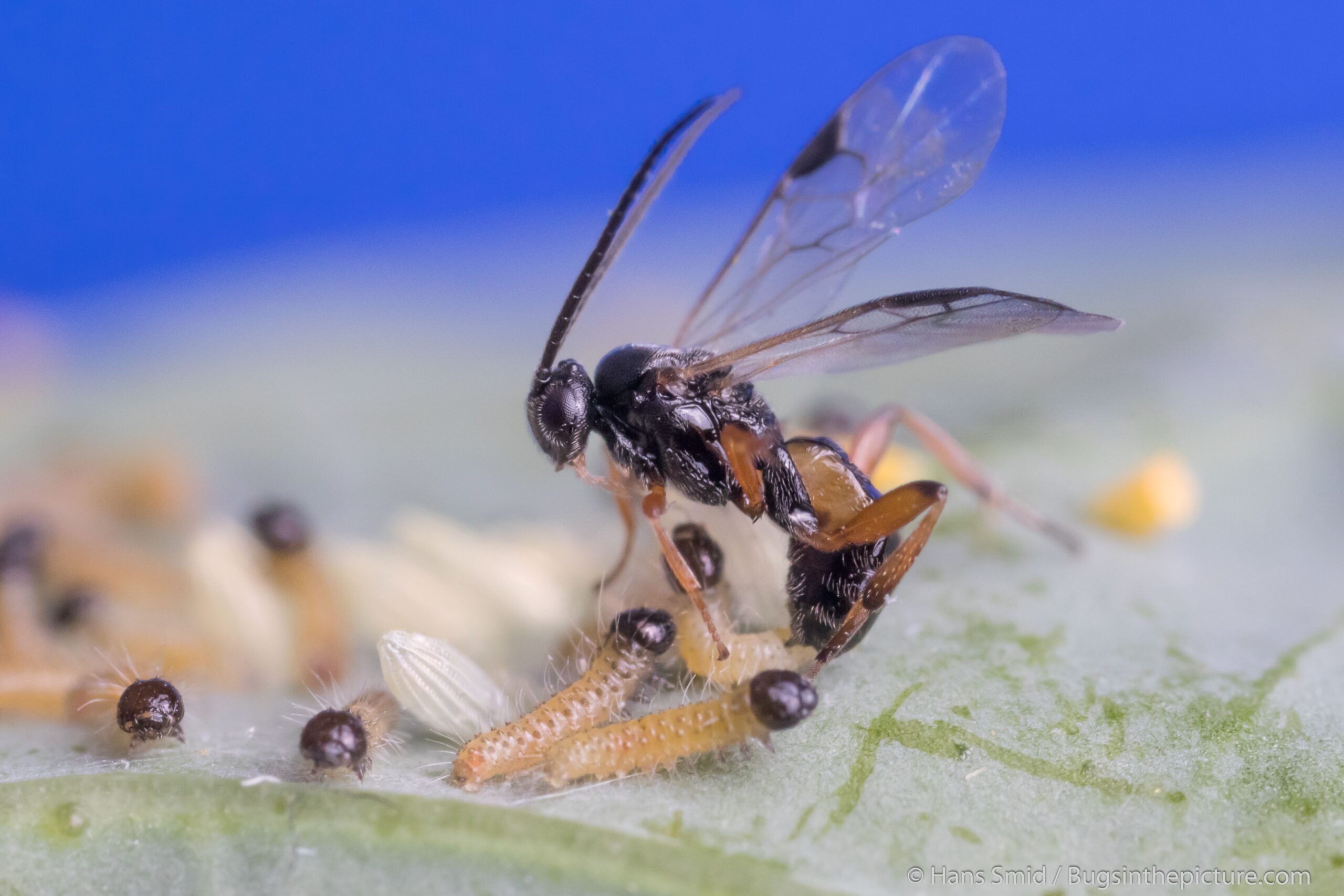RESULTS
Parasitic wasps in strip cropping systems suppress cabbage white better
Precursor to natural pest management research within CropMix, is the research of Luuk Croijmans (Wageningen University & Research). Luuk conducted his research within the system experiments in Wageningen and Lelystad that are now part of CropMix.
Luuk studied the effect of strip cropping on biological pest control of cabbage white caterpillars by parasitic wasps. ‘When we grow different crops in narrow strips, parasitic wasps manage to suppress cabbage white caterpillars better. As a result, agricultural crops are better protected from predation, and a grower needs less pesticides,’ Luuk said.
Biological pest control of cabbage white by parasitic wasps was greater in strip cropping systems than in monocultures. In pixel cropping, where the crop diversity is very high and there is a different crop on every square metre, the biocontrol decreased. Possibly, the landscape was so diverse that the parasitic wasps could not find the caterpillars properly.
In the mini documentary below by Hans Smid you can see the fascinating process of biological control and the findings of the research. Luuk explains what parasitic wasps are, what they do, and how they can help us make the agricultural system more sustainable by using natural processes.
The coming years, Gabriele Bolletta will continue the work on biological pest control within crop diverse systems.
Scientific publication
Title: Crop species diversity levels with attract and reward strategies to enhance Pieris brassicae parasitism rate by Cotesia glomerata in strip intercropping
Journal: Functional Ecology
Authors: Luuk Croijmans, Dirk F. van Apeldoorn, Fabrizio Sanfilippo, Tshelthrim Zangpo, Erik H. Poelman



